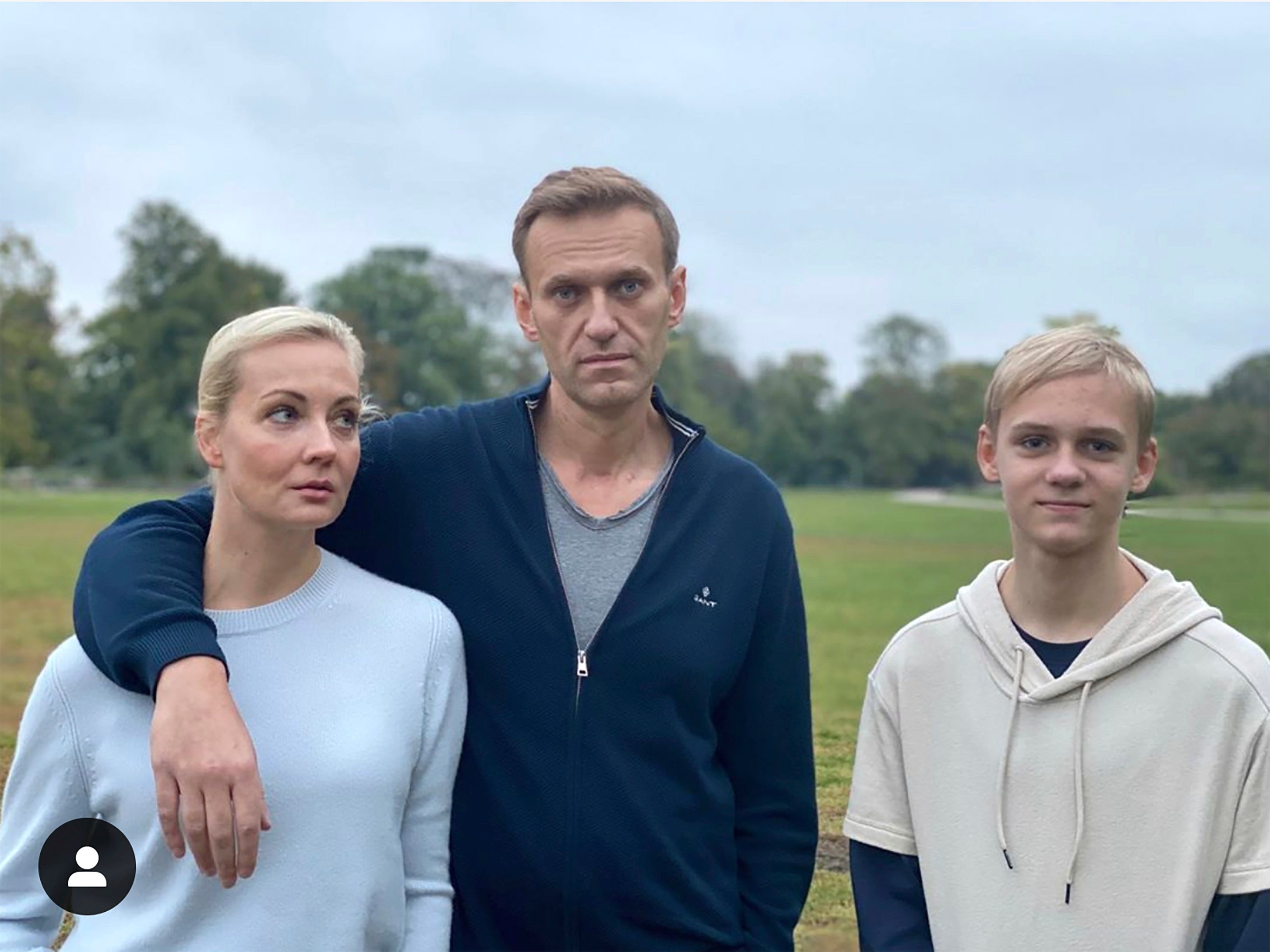Alexei Navalny: Russian envoy hits back at calls for investigation into Novichok poisoning of opposition leader
Russia’s representative to the global chemical weapons watchdog has hit back at calls for a transparent investigation of the nerve agent poisoning of opposition leader Alexei Navalny

Your support helps us to tell the story
From reproductive rights to climate change to Big Tech, The Independent is on the ground when the story is developing. Whether it's investigating the financials of Elon Musk's pro-Trump PAC or producing our latest documentary, 'The A Word', which shines a light on the American women fighting for reproductive rights, we know how important it is to parse out the facts from the messaging.
At such a critical moment in US history, we need reporters on the ground. Your donation allows us to keep sending journalists to speak to both sides of the story.
The Independent is trusted by Americans across the entire political spectrum. And unlike many other quality news outlets, we choose not to lock Americans out of our reporting and analysis with paywalls. We believe quality journalism should be available to everyone, paid for by those who can afford it.
Your support makes all the difference.Russia's representative to the global chemical weapons watchdog has hit back at calls for a transparent investigation of the nerve agent poisoning of opposition leader Alexei Navalny saying Moscow “doesn't owe anything to anybody.”
The comments by Ambassador Alexander Shulgin to a meeting of the Organization for the Prohibition of Chemical Weapons, or OPCW, were published Wednesday on the website of Russia's embassy in The Hague a day after Germany said that tests conducted at labs designated by the watchdog confirmed that Navalny was the victim of an attack with a Soviet-era Novichok nerve agent.
Anti-corruption investigator Navalny was flown to Germany two days after falling ill on Aug. 20 during a domestic flight in Russia. German officials said last month that labs found traces of a Novichok agent in the Russian politician’s system.
Navalny, who is recovering in Germany, said in comments published last week that only Russian President Vladimir Putin could have been behind the attack against him. The Kremlin called that claim “absolutely groundless and unacceptable.”
A group of 44 OPCW member states including Germany, the U.K., the United States and France delivered a statement at the organization's Executive Council meeting Tuesday strongly condemning the attack on Navalny.
The statement called on Russia “to investigate and to disclose in a swift and transparent manner the circumstances of this chemical weapons attack” and share the findings with the OPCW before its next full meeting of member states, scheduled to start on Nov. 30.
Shulgin, however, said that “Russia does not owe anything to anybody: neither to Germany nor to other countries that categorically and groundlessly accuse Russia of poisoning Alexei Navalny. We do not need to explain ourselves to them and we are not going to.”
Moscow has asked the OPCW to consider sending technical experts to Russia to “ cooperate with Russian experts on the matter,” Shulgin said. The organization has said it is willing to help, but needs clarification of Moscow's request before sending experts.
The Russian Foreign Ministry on Tuesday night also bristled at the OPCW’s findings, calling them part of a “conspiracy scenario.”
The ministry said in a statement that Russia will lay out its version of events at this week's meeting of the OPCW's Executive Council and “present the chronology of backstage manipulation by the main actors in this play.”
___
Associated Press writer Daria Litvinova in Moscow contributed to this report.